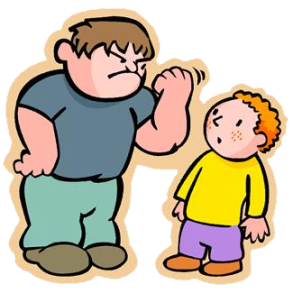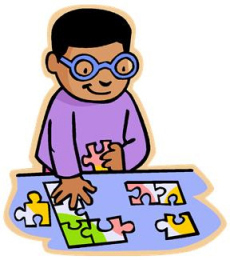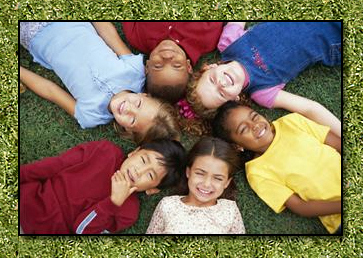Don M. Winn's Blog, page 31
June 3, 2013
Children’s Book The Knighting of Sir Kaye Wins A 2013 IRDA!
 I am thrilled to announce that my first chapter book, The Knighting of Sir Kaye (by Don M. Winn), has won the 2013 Indie Reader Discovery Award in the Children’s Category!
I am thrilled to announce that my first chapter book, The Knighting of Sir Kaye (by Don M. Winn), has won the 2013 Indie Reader Discovery Award in the Children’s Category!
This was announced Saturday, June 1, 2013 at Book Expo America in New York, so the announcement should be visible any minute now at http://indiereader.com/irda/?irda_winners=the-knighting-of-sir-kaye but in the meantime, the Indie Reader review had lots of good things to say about the book…read the extract below, or read the full Indie Reader Discovery Award Winner The Knighting of Sir Kaye Review.
“Sir Kaye, The Boy Knight is really an excellent start to what promises to be a fine medieval adventure series for young children, readable and entertaining…This is a lively and adventurous kids’ book, full of gentle humor and warmth. The boys are appealingly human and, well, boyish, with the beginnings of real nobility and honor but by no means over-idealized…The adventures are neither dull nor too scary for the young reader, and the plot is cheerful, lively and entertaining…The writing is clear, smooth, and well-edited, as a children’s book ought to be…there are clever and bright touches throughout…”
Forty years ago when I was a young dyslexic student, I never dreamed of someday being able to write. I certainly never imagined that anything I wrote would resonate with other human beings. I am truly energized and invigorated by the meaningful connections that I am developing with my reading audience.
It’s such a delightful privilege to win this Indie Reader Discovery Award, and I am very grateful to the judges who recognized my work. I look forward to interacting with my future readers.
Want to know more about the story? Read the Sir Kaye excerpt on this blog, or check out The Knighting of Sir Kaye book trailer.


May 23, 2013
Interview With Bridget Nye: 8 Year Old Author
 In April of this year I attended the North Texas Book Festival as an exhibiting author. It was a very pleasant venue and I met a lot of nice folks. Two in particular stood out—eight-year-old exhibiting author Bridget Nye and her mom Megan. Bridget has been writing books for about a year now and her parents support her passion by helping her in various ways, including having the books published, and taking her to events such as the North Texas Book Festival.
In April of this year I attended the North Texas Book Festival as an exhibiting author. It was a very pleasant venue and I met a lot of nice folks. Two in particular stood out—eight-year-old exhibiting author Bridget Nye and her mom Megan. Bridget has been writing books for about a year now and her parents support her passion by helping her in various ways, including having the books published, and taking her to events such as the North Texas Book Festival.
Last week I wrote a little about some of the unexpected benefits that happen when parents recognize and nurture their children’s gifts. In connection with that, I thought I’d interview Bridget and her mom to share a real life example of some parents who help their daughter do what she loves. I realize that many parents may not have the time or resources to nurture their children’s gifts to this extent, but to whatever degree parents are able to assist their children to find and do something they love, it will benefit their children.
I especially appreciate Megan’s suggestions about how to help your kids find what they love and how you can tell that it’s real and about encouraging kids to use their talents to help others in some way (see numbers 4 and 5 from Megan below).
Interview with Eight-Year-Old Author Bridget Nye
How old were you when you decided that you wanted to write stories?
I was 7 when I wanted to start writing. I wanted to start writing because I liked reading books.
How many stories have you written?
I have written two books. My first one is called Bridget’s Trips and it’s about all my family going all over the United States and a little bit of Mexico. It’s a true story. My second book is called The School Yard Crazy Summer. It’s going to be a series and I’m working on the second one in the series now. It’s about 8 friends who travel all over California on their summer vacation and they bring their dog Murray. They forget him a lot and he has his own adventures. The next book will be about their winter vacation.
Which one is your favorite, and why?
The School Yard Crazy Summer is my favorite because all my friend’s names from school are in it and I like the characters that I made up.
Where do you get your ideas for your stories?
I get my ideas from personal life. I get lots of ideas from school and I try to remember cool things that can go in my book.
What are your future plans?
Some of my writing goals have been met- I have a book in the school library and the town library. I have books for sale in our town book stores, and one of my friends told me he loved my book! My next goal is to be like Jeff Kinney and to have my book made into a movie. Thank you for interviewing me!
An Interview with Bridget’s Mom
Is your family a family of readers?
Reading is a huge part of our family life. We all love to read and snuggle up with a good book. My father never went anywhere without a book and he would be so proud of Bridget today.
Did you and your husband read to Bridget and her brother extensively when they were young?
We read to them a lot when they were little, but Bridget’s love of reading took off when she started reading series. Diary of a Wimpy Kid is her favorite series and her dream is to meet Jeff Kinney. She loves The Magic Tree House books and The American Girl doll books. She loves waiting for a new book to come out and I think that’s why she decided to start a series of her own.
What do you and her father do to foster her creativity and encourage her talents?
Her father and I have tried extremely hard to not push our kids into doing what we want them to do, instead [focusing on] what they want to do. When Bridget started showing an interest in writing, I told her we could start writing a book. I never expected it to grow into what it has. She dictates the story to me and I type word for word what she says. She stands over my shoulder and makes sure that I don’t change anything. These books are Bridget’s ideas and expressions, not mine. She wakes me up at 6:45 AM to write before school and working on her book is the reward at the end of the day once homework is finished. Once she became serious about becoming a writer and getting her books published and out to the public, I started researching craft shows, book fairs and book signings, anywhere that she could try to sell her books. If this is what she wants to do, then it’s our job as parents to find a way to make it happen.
What do you recommend to other parents who see talent in their own children?
It doesn’t matter what the talent is that a child shows, there are outlets to help the child grow. If they are good at painting, find them art classes. If they are good at cooking, find them culinary classes. Usually a child will know within 3 or 4 classes if they really like something or if they change their mind. I think exposing them to as many different things as you can gives them the opportunity to decide for themselves what they like the best. It’s not worth fighting with them every day to practice piano if they hate to play. When they find something they love, they will be begging you to let them do it more often.
Any ideas you’d like to share with other parents about helping children pursue their talents?
My husband and I are firm believers in giving back when you are blessed and we are trying to teach our children this. Bridget has been making very good money for an eight year old selling her books. She has to put some money into savings, some money into publishing fees, she donates some money to the Oklahoma City Alzheimer’s Association in memory of her grandfather, and then she is allowed to spend the rest of her money. This has been teaching her a valuable lesson about money management and what it takes to be a successful author.


May 16, 2013
Help Kids Deal With Bullying—Nurture Their Gifts
 Last week I mentioned briefly that it is important for parents to nurture whatever gifts and talents their children may have. I was emphasizing this idea in terms of helping a child with a learning difficulty learn to see themselves in terms of their abilities, not just their difficulties.
Last week I mentioned briefly that it is important for parents to nurture whatever gifts and talents their children may have. I was emphasizing this idea in terms of helping a child with a learning difficulty learn to see themselves in terms of their abilities, not just their difficulties.
Interestingly, there’s another benefit to taking time to nurture your children’s gifts—it can help protect them from bullying to some extent. It can’t really prevent bullying from happening, but it might help lessen the harmful effects that bullying can produce. Here’s the reasoning behind that:
In its simplest, most broken-down form, bullying is the attempt by one person to make another feel worthless. Children with a strong sense of self-worth and self-identity are less likely to believe a bully who tries to make them feel valueless.
Parents who help their children figure out what they love to do and who help their children pursue those interests in a healthy and balanced way can build up that protective sense of self-worth in their children. Here are a few more details on how doing this can help a child deal with bullying:
Children who have something special in their lives that they are good at have self-confidence that is even evident in the way they walk. This is a protection because bullies are more likely to target kids with a noticeable lack of self-confidence as easy victims.
Nurturing your children’s talents make them feel good about themselves. It gives them a sense of purpose (not to mention control) and a sense of accomplishment, which increases their sense of self-worth, which makes it much harder for a bully to successfully convince your children that they are worthless. It also gives you as a parent legitimate opportunities to genuinely praise your children for various qualities that become evident as they work to develop their abilities. Hearing positive words from someone they care about (you!) can be a powerful antidote/protection against hearing negative words from a bully.
Having a passion for something that they are good at helps kids see life in terms of the big picture. It helps them realize there is more to life than the world at school (or wherever they find themselves in danger of being bullied) and that there is a world out there where they love doing something they are good at and where others will respect their hard work in that area.
If your children’s interests bring them in contact with other people—including adults—so that they develop appropriate relationships with them, your children will have the benefit of knowing that there are other people in the big world (outside of school) that matter to them, people whose opinions they respect , people who think highly of them, and that it really doesn’t matter as much what one bully thinks about them.
If your children’s interests tend toward helping other people—or if you can somehow get them involved in using their talents to help others from time to time—it also gives them a different perspective on the world. Children who have a habit of working to help others are less likely to allow themselves to believe a bully who tries to convince them that they are worthless.
Of course, cultivating your children’s gifts cannot prevent bullying. And if you find out that your child is a victim of bullying, of course you need to act on this information. Bullying is a serious problem and parents are not able to completely prevent it from ever happening to their children, but taking the time to nurture your children’s talents may make them less likely to believe a bully who tries to convince them that they are worthless.


May 9, 2013
Could Your Child be Gifted?
 Last week I mentioned that identifying twice-exceptional children can be very difficult. (Quick review: a twice-exceptional child is one who is diagnosed with a learning difficulty and who also has been evaluated as fitting the criteria for being called a gifted child. The term twice-exceptional is often abbreviated 2e.)
Last week I mentioned that identifying twice-exceptional children can be very difficult. (Quick review: a twice-exceptional child is one who is diagnosed with a learning difficulty and who also has been evaluated as fitting the criteria for being called a gifted child. The term twice-exceptional is often abbreviated 2e.)
According to an article that originally appeared in The National Psychologist (reprinted with permission on the SENG website), “some ‘twice-exceptional’ children, intellectually bright with a specific learning disability, may mask their giftedness or deficit, rendering one or both conditions invisible, and thus remain unacknowledged and unsupported.”
In short, some children may be gifted enough to compensate to a certain extent for whatever learning difficulty they may have. This makes it difficult for educators to help such students learn to work with their learning difficulties and also to help them reach the full potential of their giftedness. Alternately, twice-exceptional children may have a dominating learning difficulty that requires so much help and attention from educators and parents that their giftedness may go completely unnoticed.
So parents, if your child has been diagnosed with a learning difficulty, do not rule out the possibility that they may also be gifted. It’s not a guarantee that they will be, but as a parent, it is always beneficial to notice and nurture any of your children’s gifts, all the more so when they have a recognized learning difficulty. It will help them to see themselves in terms of their own individual gifts and abilities, not in terms of areas where they may compare unfavorably with their peers and which they may see as a “disability.”
The article The Misunderstood Face of Giftedness by Marianne Kuzujanakis, published in The Huffington Post, points out another possibility where a child’s giftedness might be overlooked. She writes, “Normal giftedness can be easily confused with a diagnosable mental disorder. Gifted kids may talk a lot, have high levels of energy, and be impulsive or inattentive or distractible in some settings — similar to symptoms of ADHD. It’s not unusual for gifted kids to struggle socially, have meltdowns over minor issues, or have unusual all-consuming interests — all pointing to an inappropriate diagnosis of autism.”
She goes on to quote Dr. Jack Wiggins, the former president of the American Psychological Association, who has said, “This is a widespread and serious problem — the wasting of lives from the misdiagnosis of gifted children and adults and the inappropriate treatment that often follows.”
The SENG (Supporting Emotional Needs of the Gifted) website has an article (referenced earlier) that includes the following list of traits of gifted people that are “commonly misdiagnosed as mental health pathology:”
High activity level
Impulsivity
Worrier
Sensitive to loud sounds
Sensitive to textures in clothing
Highly emotional
Refuses to do schoolwork
Fails to complete tasks
Stubborn
Difficulty with transitions
Impatient
Interrupts
Argumentative
Frequent mood swings
Distractible
Reading difficulties
Poor handwriting
Doesn’t pay attention
Poor sleeper
Poor eater
Atypical sense of humor
Language/speech delays
Clearly this is something that parents want to be aware of. If you have a child that is struggling with a learning problem or has been tagged with a label like ADHD, etc. perhaps a reevaluation may be in order. It could be that you have a gifted child.


May 2, 2013
What is a Gifted Child?
 What do you think of when you think of gifted children? Do you picture children who excel academically, who are leaders in their classes, and who may be ready and eager to learn things that are currently beyond the reach of most of their peers?
What do you think of when you think of gifted children? Do you picture children who excel academically, who are leaders in their classes, and who may be ready and eager to learn things that are currently beyond the reach of most of their peers?
If so, you are not alone. When I was growing up, I suffered from the stigma of having dyslexia. I was always comparing myself unfavorably to others based on a kind of linear scale I imagined. Because I had such difficulty reading and writing, I was at one end of the scale. Normal people were in the middle. The really smart kids, the gifted ones, were at the other end of the scale as far away as possible from people like me.
And yet, think of an exceptional person like Thomas Edison. His teacher considered him “an hyperactive stupid” child who couldn’t be taught, and yet he was actually very gifted.
So having a learning difficulty does not necessarily preclude a child from being gifted.
There are many accepted definitions of what constitutes a gifted child. Here is one of them, taken from the National Association for Gifted Children website (they offer other commonly-used definitions here): Gifted individuals are those who demonstrate outstanding levels of aptitude (defined as an exceptional ability to reason and learn) or competence (documented performance or achievement in top 10% or rarer) in one or more domains. Domains include any structured area of activity with its own symbol system (e.g., mathematics, music, language) and/or set of sensorimotor skills (e.g., painting, dance, sports).
According to this definition, gifted children show outstanding levels of aptitude in one or more domains. These domains may not include reading, writing, or traditional academics, but could include art, music, dance, or athletics. In addition, children with learning difficulties who are gifted may have extreme difficulty doing written math on paper, but may be able to demonstrate exceptional mathematical competence verbally or by some other means.
While mulling over this thought, I came across an article by Marianne Kuzujanakis in The Huffington Post called The Misunderstood Face of Giftedness, where she pointed out that “contrary to common stereotypes, giftedness is not synonymous with high academic achievement. The gifted student archetype…does not fit all gifted students. Some are the class clowns, the lonely awkward child in the back row, the troublemaker. Special needs classrooms are where a number of gifted children end up — their giftedness left unsupported.”
So yes, a dyslexic child or a child with any other learning difficulty can also be considered gifted if they meet certain criteria—even if they are doing poorly in school.
A widely used term for a child with a diagnosed learning difficulty who has also been evaluated as fitting the criteria for being considered gifted is twice-exceptional. It is often abbreviated as 2e. Sometimes it can be very difficult to identify these twice-exceptional children. Check back next week and I’ll explain why.


April 25, 2013
Teaching Children Patience and Perseverance
 Last week I promised to suggest a few starter ideas on how to teach children patience and perseverance. I have been writing about dyslexia for the past few weeks, and so this was intended to be especially helpful for parents of children with dyslexia (I’ll explain one reason why below). However, these are great qualities for any child to develop, so apply and expand and adapt these ideas freely if you find they might benefit your child.
Last week I promised to suggest a few starter ideas on how to teach children patience and perseverance. I have been writing about dyslexia for the past few weeks, and so this was intended to be especially helpful for parents of children with dyslexia (I’ll explain one reason why below). However, these are great qualities for any child to develop, so apply and expand and adapt these ideas freely if you find they might benefit your child.
Patience and the ability to work hard are two priceless qualities for a dyslexic child to develop. Because sight reading and word recognition never becomes automatic, dyslexic people must in a sense “sound out” every word they read for the rest of their lives. As you can imagine, this takes a tremendous amount of time and effort. These qualities do not come easily to any of us, but they can be nurtured in children by their parents.
One thing parents can do is to be sure to watch for occasions when their children show patience or work hard at something and to commend them for doing this. It may be even more beneficial to carefully watch for opportunities to genuinely commend children for showing these qualities in situations that have nothing to do with reading or writing. This may help children come to value these qualities in a big-picture/life-context setting, not just a “reading is hard” setting.
When you talk with your children, let them see that you admire accomplishments that require lots of patience and hard work. There is so much emphasis in society on immediate gratification – having what you want when you want it, but there’s not nearly as much emphasis on the hard work and time it can take to get what you want. So help your children notice and appreciate the things that take more time to accomplish. Let them see that you value these things so that they can do the same.
Learning to be patient with other people is a whole different ballgame from learning to be patient with yourself. Parents, you can help your children learn to be patient with themselves by your example. Do they see you working hard at something and being patient and persistent as you get frustrated with something? Or do they see you giving up or reacting very negatively when you are in this situation? They will model themselves on your example, and if your children are dyslexic, it is an absolutely vital life skill for them to learn to be persistent in a difficult situation and to be patient with themselves. Do your best to show them how it is done, and you will be giving them a valuable gift.
 Children with dyslexia are almost forced to learn these habits of patience and perseverance because of the extra effort they have to put forth in their lives. Helping them to learn these things early in life will be a big help to them. And they will end up having an advantage because of this. Most kids don’t like the idea of working hard at things they don’t like to do. I know it’s hard for many adults as well. But a child with dyslexia (or any child, really) who learns to work hard and to be patient will have a distinct advantage in life over someone who hasn’t learned these things.
Children with dyslexia are almost forced to learn these habits of patience and perseverance because of the extra effort they have to put forth in their lives. Helping them to learn these things early in life will be a big help to them. And they will end up having an advantage because of this. Most kids don’t like the idea of working hard at things they don’t like to do. I know it’s hard for many adults as well. But a child with dyslexia (or any child, really) who learns to work hard and to be patient will have a distinct advantage in life over someone who hasn’t learned these things.


April 18, 2013
Alleviating the Complications of Shame for Dyslexic Children
 Almost all adult dyslexics who share their personal histories mention having feelings of shame as a child (and sometimes as an adult) that created a major difficulty in living with dyslexia. Children fear revealing to their parents that they cannot read. If they don’t know they are dyslexic, they may feel ashamed and think that they are stupid because they can’t keep up with their classmates when it comes to reading and spelling. This has a crippling effect: as humans, when we feel shame, we are distracted from our tasks and cannot give them the necessary attention.
Almost all adult dyslexics who share their personal histories mention having feelings of shame as a child (and sometimes as an adult) that created a major difficulty in living with dyslexia. Children fear revealing to their parents that they cannot read. If they don’t know they are dyslexic, they may feel ashamed and think that they are stupid because they can’t keep up with their classmates when it comes to reading and spelling. This has a crippling effect: as humans, when we feel shame, we are distracted from our tasks and cannot give them the necessary attention.
Dyslexic pupils are especially vulnerable to negative reactions from parents, teachers and peers. They may have feelings of shame associated with perceived failure, feelings of inadequacy, low self-esteem, hopelessness and helplessness. What can parents of dyslexic children do to help lessen the possible feelings of shame that their child might be dealing with? Here are a few thoughts on the subject:
If it’s a secret, it’s scary. It is human nature to fill an information void with worst-case scenarios. Ironically, a decision made to protect a child from a diagnosis of dyslexia can often breed shame and fear.
When a student who has been tested for dyslexia sees parents and teachers whispering together and being discreet, it screams of shame. Parents and teachers can help prevent this by discussing a diagnosis of dyslexia openly with children in a way that won’t cause them embarrassment.
With the right information, parents and teachers can develop an academic plan to help dyslexic students minimize their weaknesses and maximize their strengths. Students can be involved in crafting this plan as well.
Help your children be their own advocates. In time, they will have to speak up for themselves in order to receive the assistance or accommodation they need in a learning environment, so get them involved in their own educations at an early age, keeping their level of involvement appropriate for their ages.
If your children show signs of dyslexia at a young age, consider having them tested. It may be easier for them to know early in their school careers that they have an actual, specific problem that many other people share than to spend a few years feeling stupid or bad about themselves because for some unknown reason, they can’t keep up with other students.
Encourage your children to speak openly about their dyslexia.
Help your children focus on their own individual strengths.
Help your children develop patience and perseverance. This is a hard one, but check back next week for a few possible starter ideas on how to do this.


April 11, 2013
Tools and Strategies for Dealing with Dysgraphia: Writing with Confidence

For a dyslexic person, handwriting can be a hassle. And judging from this stock photo I decided to use, it can also make one hit the Pellegrino pretty hard.
Handwriting is a struggle for dyslexics—even jotting down a little note requires a lot of extra thought and attention. So computers are great. Everyone knows computers are great. They are a pretty obvious tool for anyone to use for writing. But here’s why they’re so great for helping a dyslexic person conquer the fear and hesitation that can accompany the task of writing.
Computers make a world of difference to a dyslexic person. Typing on a computer means I don’t have to struggle with trying to write legibly—the text is perfectly legible every time. Second, it helps with spelling, which gives me more confidence in having others see my work, although early versions of word processing software didn’t always get the spell check quite right. Third—and this is a biggie—I don’t have to worry about getting everything perfect the first time. With a word processor, I can easily go back and change things around as much as I need to until it makes sense and I am happy with it.
It took me a while to figure this out (more on this another time, but remember I was already a young adult by the time computers were available to the public). When writing on paper, you do need to get it right the first time (unless you have a 10lb eraser and all the time in the world to rewrite draft after draft over and over again). In my life, getting it right the first time is simply not a possibility for me. That’s the biggest advantage of using a computer. I don’t need to worry about spelling, punctuation and composition the first time through a draft. If I did that, I would probably spend all day on just the first sentence. Computers give me the freedom to concentrate on transferring my thoughts into writing and the luxury to go back later and fix things as needed. It was only once I realized that it’s okay to just let my thoughts flow and to keep typing, that writing with confidence became a real possibility for me.
The last important thing to know about writing, whether you’re dyslexic or not, is that there is no substitute for practice. For many years now, I have spent several hours writing every day (in one form or another) and although it’s still a lot of work, it is much easier than it used to be and I’m continuing to improve every day.

It is so much easier to communicate in writing when using a computer. Based on my own experience, writing by hand can feel as scary as driving in the dark on an unfamiliar road full of giant potholes and tire spikes.
If you have a dyslexic child, encourage them to use the computer, to learn to type, and to see the advantages the computer provides in allowing them to express their thoughts in writing without having to be distracted by the need to get every single mechanical detail of writing (like letter formation and spelling) right the first time through.
And by all means, remember that whatever learning difficulty that you may be dealing with, you can still accomplish practically anything that you choose to do, if you’re willing to do the work that it takes to get there.


April 4, 2013
Tools and Strategies for Dealing with Dyslexia: Reading Aloud
It’s important to note that many students with dyslexia have more trouble with writing than with reading—although reading aloud can be especially stressful. That was certainly the case with me. I hated reading aloud, and I also struggled with dysgraphia and had a terrible time putting anything down in writing. Just because I had a hard time translating my thoughts and ideas to paper, it didn’t mean that I didn’t have thoughts and ideas to share. I simply needed a way to work around the dyslexia/dysgraphia. It also meant that I would have to work a lot harder than someone without dyslexia to accomplish the same thing.
So here are some tools and strategies I use for dealing with two things that can strike terror into the heart of a dyslexic person: reading aloud and writing. This week I’ll just cover reading aloud. Next week I’ll talk about writing, and why the obvious solution is so very amazing in my opinion.
Reading aloud. For most dyslexics, having to read aloud to a group is very stressful and some go to great lengths to avoid it. I know I did early on. Now I find that public reading is one my favorite things to do, although it does require quite a bit of prep work on my part. I don’t do well if asked to sight-read something that I haven’t reviewed ahead of time.
Before doing any public reading, I will first carefully read over the material and highlight the hard words. These include words that I am afraid may not quickly roll off my tongue as well as any new words that I may come across. I will also write out the phonetic pronunciation of any of those words that are giving me particular difficulty that day and practice reading those words aloud over and over until I feel comfortable.
Next, I read the entire section aloud and as I do, I mark any awkward places that I may need to give extra attention. But the work is not over yet. The final step is to take a few minutes to really notice the punctuation and the meaning behind the words. I will then read through it again (as many times as necessary) practicing the proper pausing, pace, power and pitch. It is a lot of work, but the final outcome is very rewarding!


March 28, 2013
Dyslexia Presentation: A Few Facts From the Documentary
Last week I reviewed a documentary on dyslexia called The Big Picture: Rethinking Dyslexia, and a reader commented that the documentary would not be available overseas for a while. So I thought I’d share some of my notes. I warn you, I’m not a great note-taker, so I had to compile these from my memory and some words I jotted down. However, I did have another person who saw the film review my notes as well, so I think they should be fairly accurate.
Anyway, these facts from the documentary are not secrets. Most of them are pretty well-known. What had the biggest impact on me was the people who were interviewed—children and adults with dyslexia, parents of children with dyslexia, educators who go out of their way to help students deal with dyslexia. To see the emotional impact this condition has on everyone involved is astounding and inspiring and I can’t really convey it in a few short words, but in the meantime, I can share a few facts.
1 in 5 people have dyslexia, and yet it is the most misunderstood learning difference.
Dyslexia accounts for 80-90% of learning disabilities.
10 million American students have dyslexia today.
Brain Mechanics
FMRI scans (functional Magnetic Resonance Imaging, or an MRI that measures blood flow in the brain of a person who is engaged in some kind of specific mental activity, such as reading) show that the left rear part of the brain is the automatic area for reading. People with dyslexia tend to show reduced activity in this part of the brain, and for them, reading becomes manual rather than automatic.
This part of the brain is also involved in recognizing and processing the disparate sounds that make up words. That explains why reading is so difficult for a dyslexic person, but it also can affect their perception of the different sounds of spoken words. Misspeaking is also common among dyslexics.
Some Good Things About Dyslexia
Dyslexia is not just a list of weaknesses, it also produces valuable strengths.
A learning disability does not equate to a thinking disability.
Dyslexia actually forces you to have to think and figure things out for yourself more, because learning is so hard. But that’s a strength, because the world needs thinkers more than it needs learners.
Dyslexics can be very imaginative people who think outside the box.
Will it Go Away?
No. For a dyslexic person, reading never becomes automatic: each word needs to be sounded out phonetically for life.
The slow reading and poor spelling never go away, but patience and perseverance will pay off. Making the extra effort will become part of a dyslexic person’s lifestyle and in time, things will get easier as a dyslexic person gets more and more used to dealing with his or her specific difficulties.
School and Dyslexia
A dyslexic person will never read quickly. No matter how brilliant a student may be, reading with dyslexia will always be laborious and it might take a dyslexic student more than double the time other students take to read the same thing. Dyslexia robs a person of time. Without accommodation in a learning setting (like extra time to take exams), there can be tremendous strain to keep up, and often the capacity is not there.
Remember that testing just proves how fast one can read and how much one has memorized. Life requires understanding, not just memorization.
Each student has to crack the code of their own learning style.
Care about the effort more than just the grade.
Common Misunderstandings About Dyslexia
One particularly damaging misunderstanding of the condition is the belief that students who suffer with dyslexia possess diminished academic potential. This is not true.
Many people think that because dyslexic students require adaptations and adjusted expectations related to reading speed, spelling accuracy and their mode of written expression (laptop vs. handwriting) that they will not succeed as well as their non-dyslexic peers. This is also not true. Many dyslexics have become heart surgeons, neurosurgeons, lawyers, writers, CEOs, etc.
Dyslexia is a mechanical disability, not a thinking disability. Teachers need to communicate this, parents need to understand this, and—most of all—dyslexic students need to know this.








